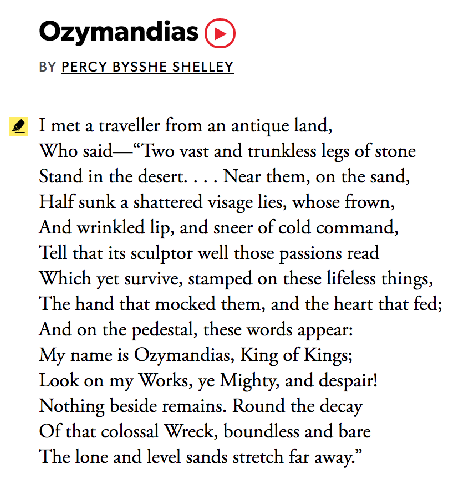Ozymandias - Mixed Practice
{"name":"Ozymandias - Mixed Practice", "url":"https://www.quiz-maker.com/QPREVIEW","txt":"Prep Phase Read the following poem carefully. On a scale of 1-10, how well did you understand this poem? (1 = not well; 10 = very well), On a scale of 1-10, how confidently could you teach or articulate the ideas in this poem: (1 = not confident; 10 = very confident), Take a moment to identify the words and phrases that stuck out or resonated with you. Write them down below:","img":"https://www.quiz-maker.com/3012/images/ogquiz.png"}
More Quizzes
Europe
13632
Does Bill Cipher Like You?
840
Jack and Rachel's Quizlamic State
17836
What you know of Logan
1478
Natural Selection Unit Test Practice - Free Online
201016981
What Should I Name My Cat? Take the Cat Name
201018171
Words to Spell for 6th Grade - Free Practice
201017041
Freud Personality Theory - Id, Ego, Superego
201021553
Which Dance Mom Are You? - Free Personality
201016687
Dog Anatomy - Common Veterinary Structures
201018860
What Cabin Am I? Camp Half-Blood Match
201016630
Area of Composite Figures - Free Geometry Practice
201015789
